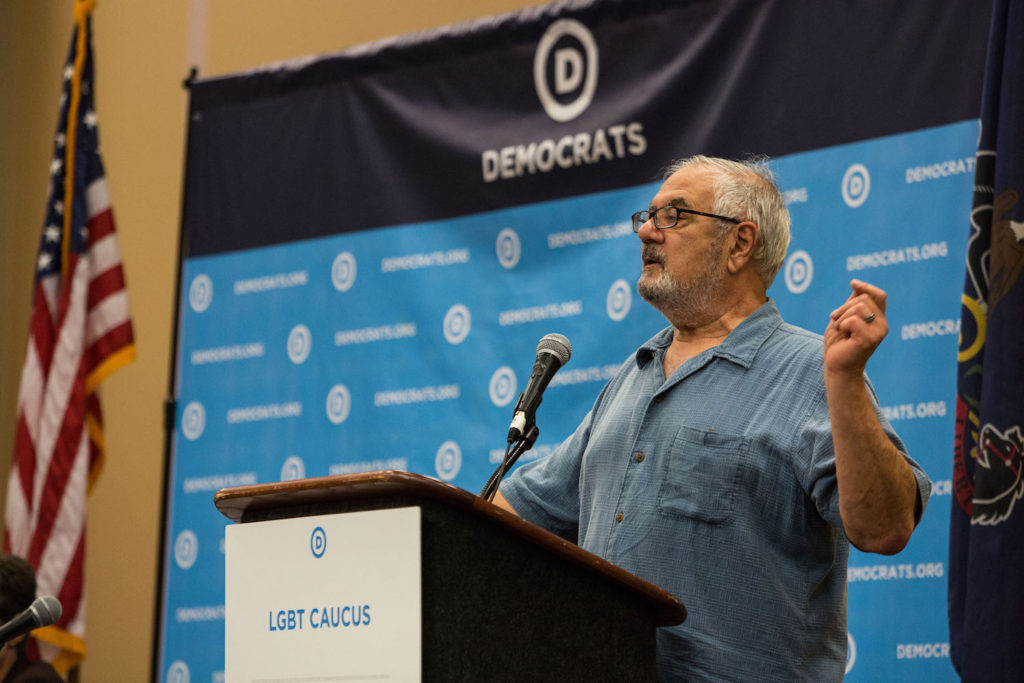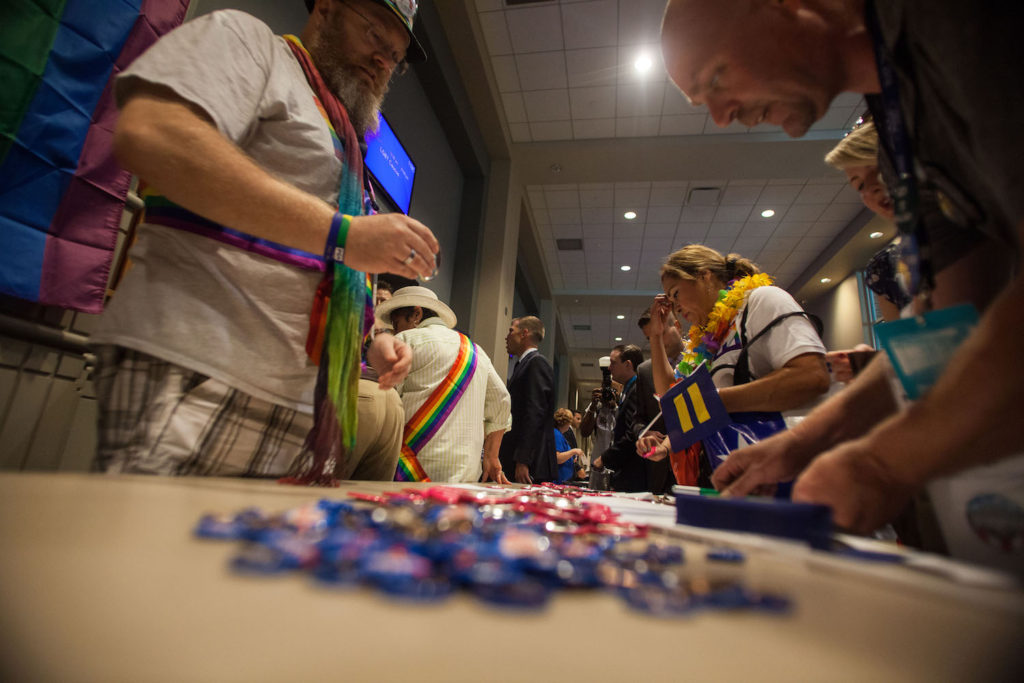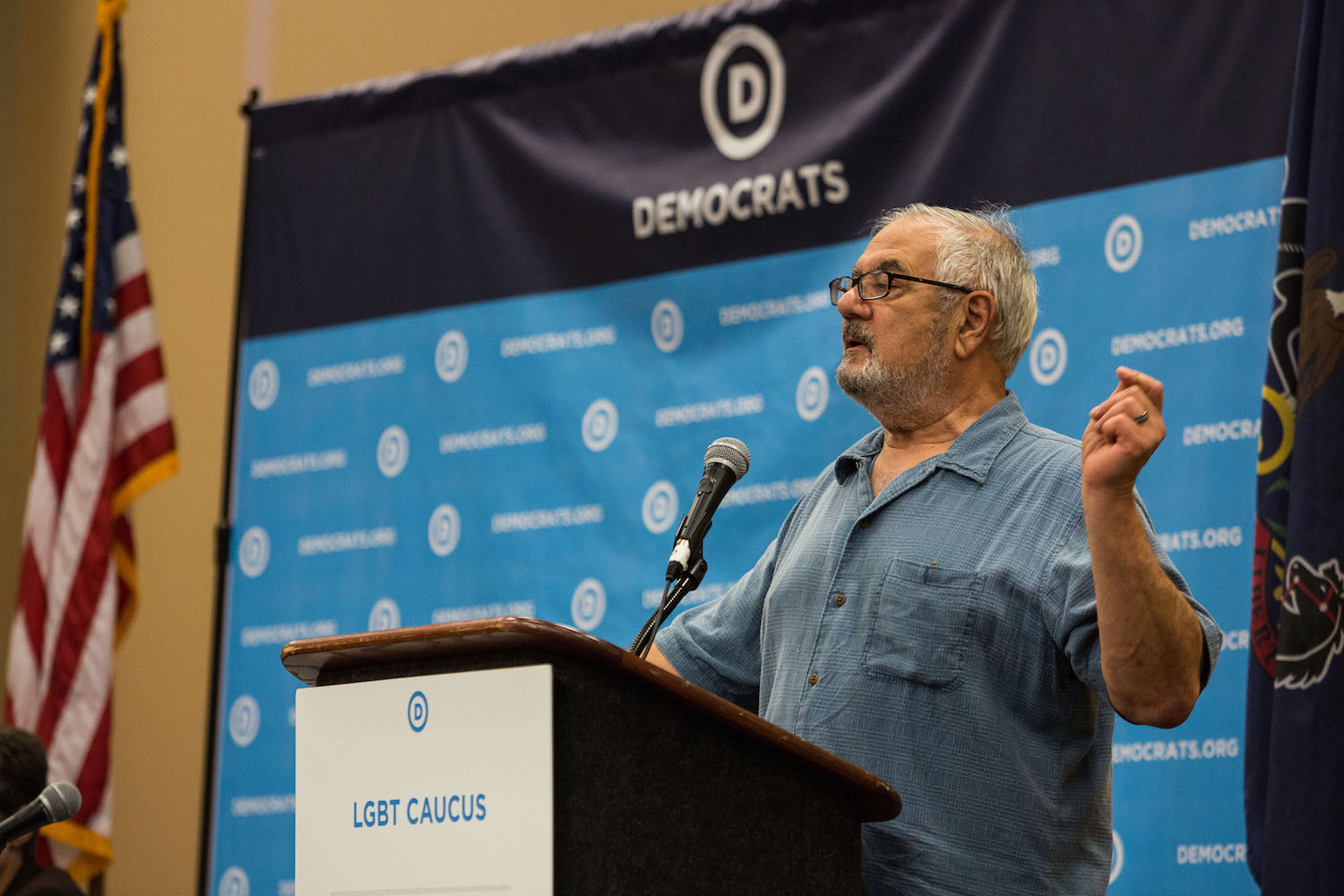
Former Congressman Barney Frank implored LGBTQ delegates at last
week’s Democratic National Convention to get their friends to vote for
nominee Hillary Clinton.
Frank, long known for his blunt talk, minced no words as he addressed
the LGBTQ Caucus July 28 at the Philadelphia Convention Center.
“I’m not going to tell you to vote for Hillary Clinton over Donald Trump
because I’m assuming you already understand that,” he said as the crowd
responded with laughter and cheers for Clinton.
“One of Donald Trump’s promises is to protect us from a foreign
invasion,” Frank said. “As a gay man we have many things we are
concerned about, but the prospect of foreign invasion has never been high
on our list.”
Frank, who long represented Massachusetts in the House of
Representatives and was one of the first members of Congress to come
out as gay, urged people in the room to find their friends who are opposed
to voting for Clinton and try to convince them that voting for somebody
else is a vote for Trump.
“You have a responsibility to confront them in a polite way – I don’t
always do that but that is the goal – and insist that they take into account
our rights,” Frank said.

This year’s LGBTQ Caucus was especially large. There were 516
delegates who self-identified as LGBTQ, including a record-breaking 28
transgender delegates; that’s 11.5 percent of all delegates. To put it in
perspective, in 2008 the LGBTQ delegates made up 5.8 percent of all
delegates. In 2012 LGBTQ delegates made up 7.8 percent.
The LGBT Caucus heard from many high-profile politicians such as New
York Governor Andrew Cuomo; Congressman Mike Honda of San Jose;
and Senator Tammy Baldwin (Wisconsin). Former NBA player Jason
Collins and his twin brother, Jarron, also made an appearance.
The meeting started with a moment of silence for the victims of the Pulse
nightclub shooting in Orlando.
Cuomo was greeted with protesters shouting “Free Palestine” after he
took to the podium. Other protesters held signs to stop the Trans-Pacific
Partnership. Anti-TPP protesters were very visible throughout the
convention.
“New York is 18 million people, people from across the globe,” Cuomo said. “We are the welcome mat for the nation. We had a
decision very early on that we have to find commonality, and the ethic of our culture has to be acceptance and non-judgmental.”
“This campaign on the other side talks about building walls, but we talk about building bridges, and how can we find ways to
connect people,” he continued. “That is what New York is all about. There is no secret why so many LGBT people went to New
York early on when they didn’t feel safe or comfortable in their home or their state; because in New York you are accepted. That is
what Stonewall is all about.”
Ted Jackson, a disability rights advocate who worked for the convention in its ADA and community engagement unit, believes that it
is extremely important to participate and attend the LGBTQ Caucus and be active in politics in general.
“Everything from the grassroots level starts with councils and caucuses and grows upward to the elected officials and delegates,”
Jackson said. “The Democratic Party isn’t just what you see on TV. It’s really grassroots of all people coming together from all over
the country who work in different caucuses to the national convention where we nominate every four years. So a lot of work goes
into it. It is important for the LGBTQ people – as a queer person myself – to know that the party recognizes my community by
holding these caucuses.”

0 comments